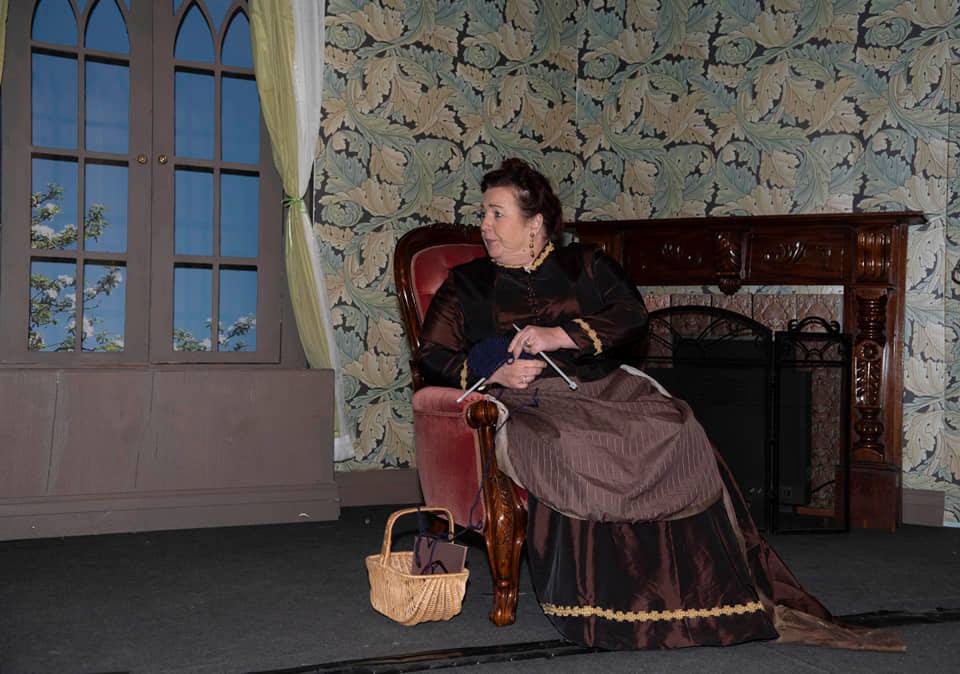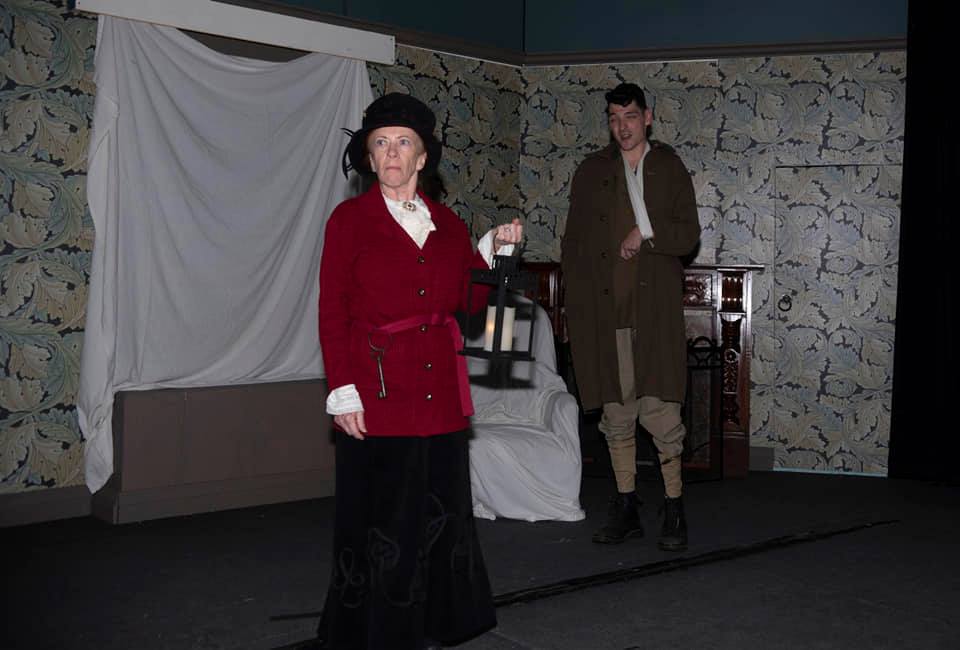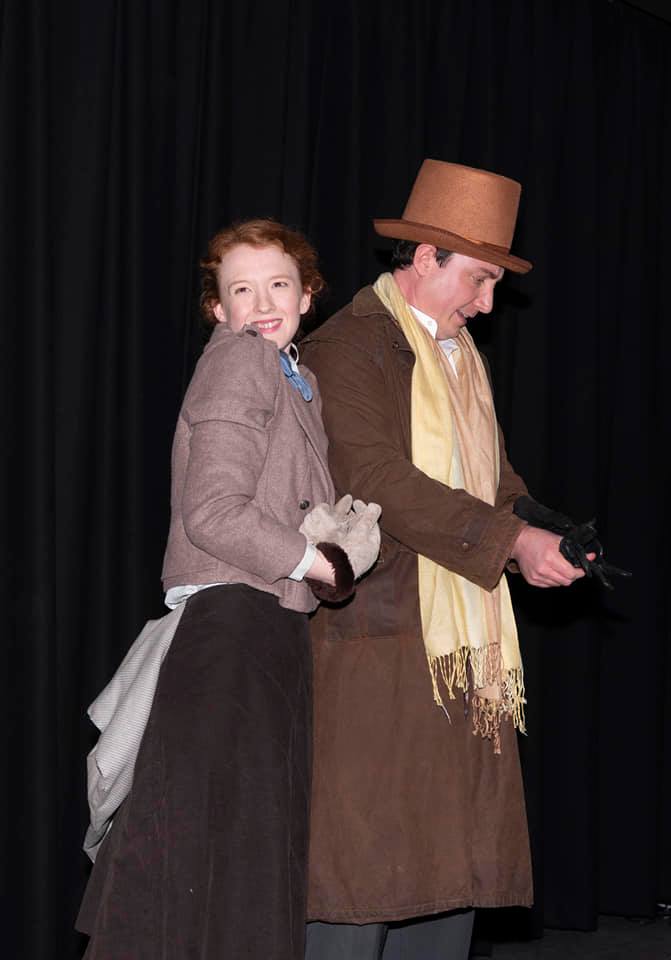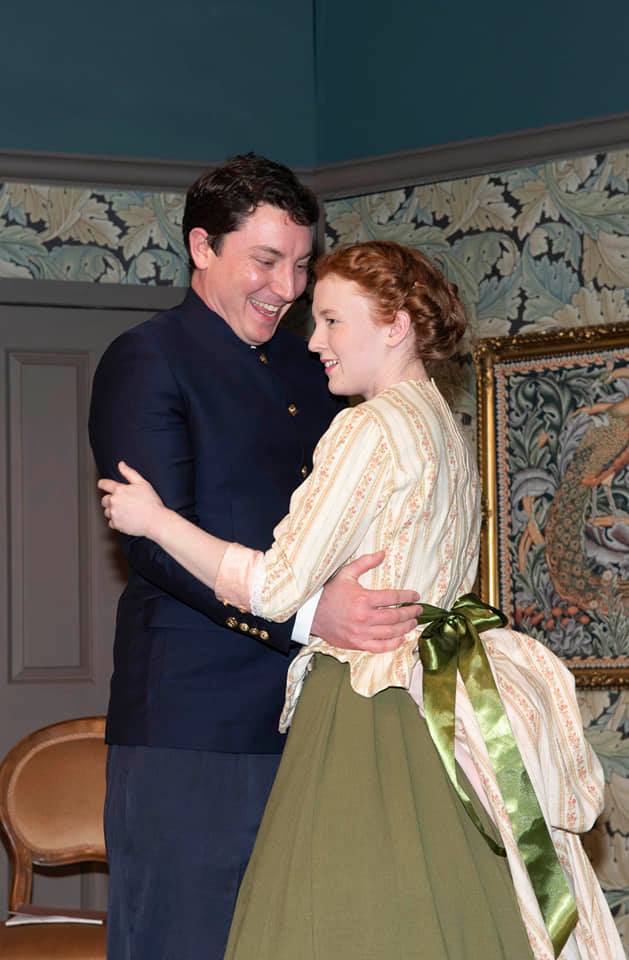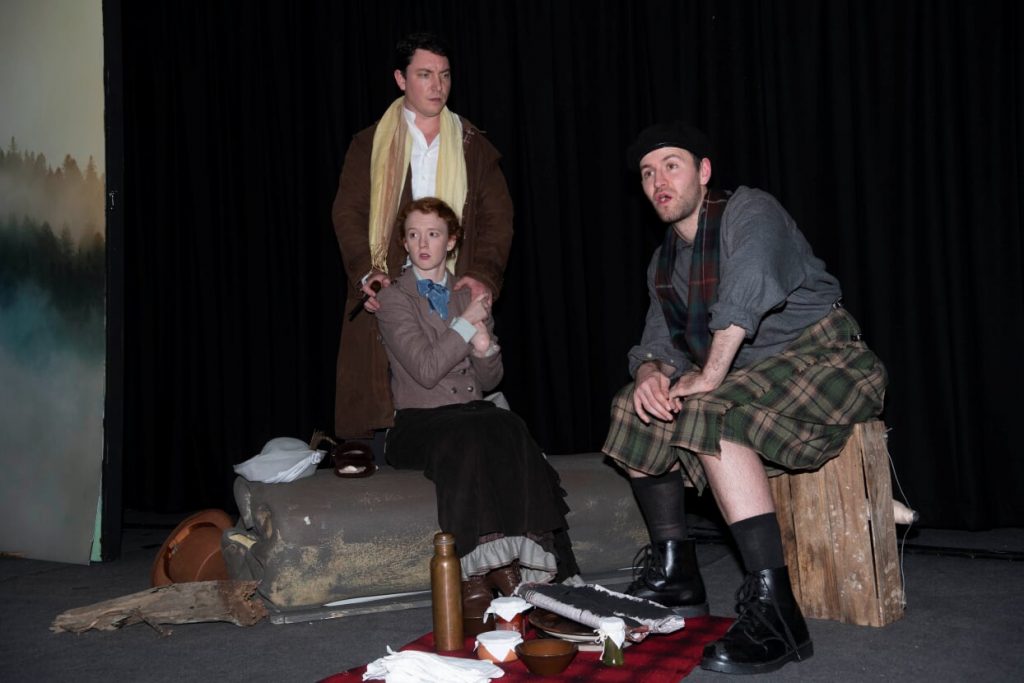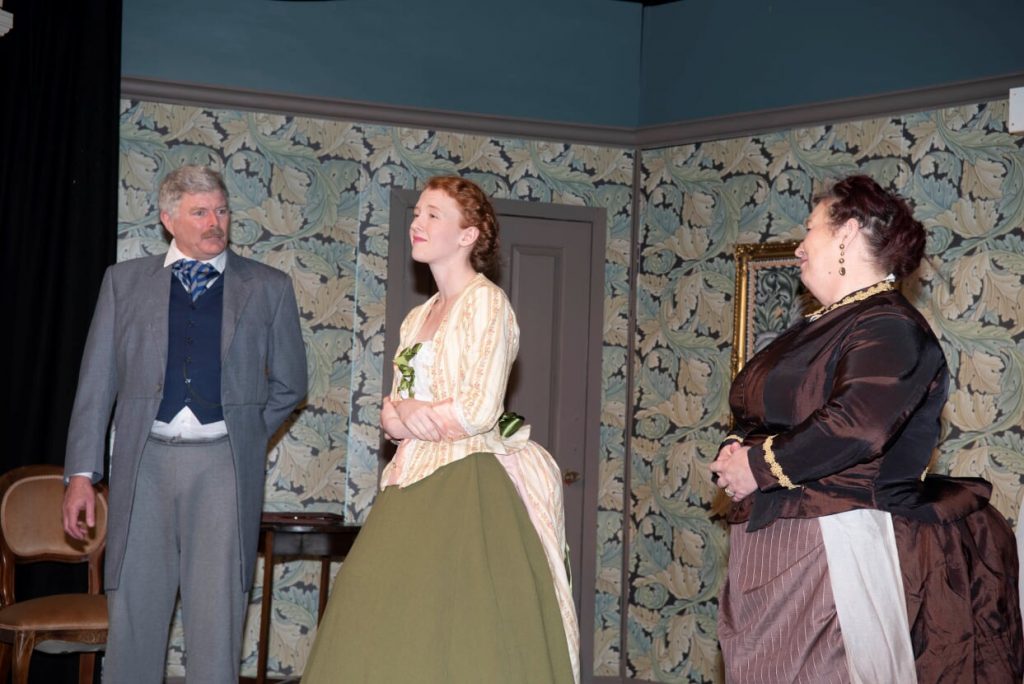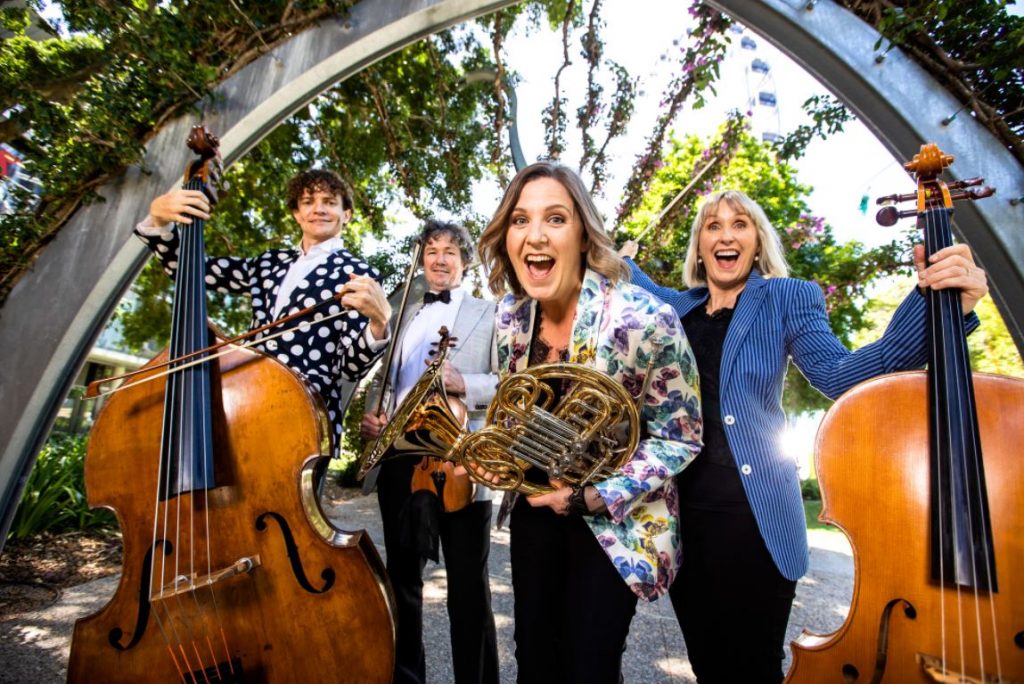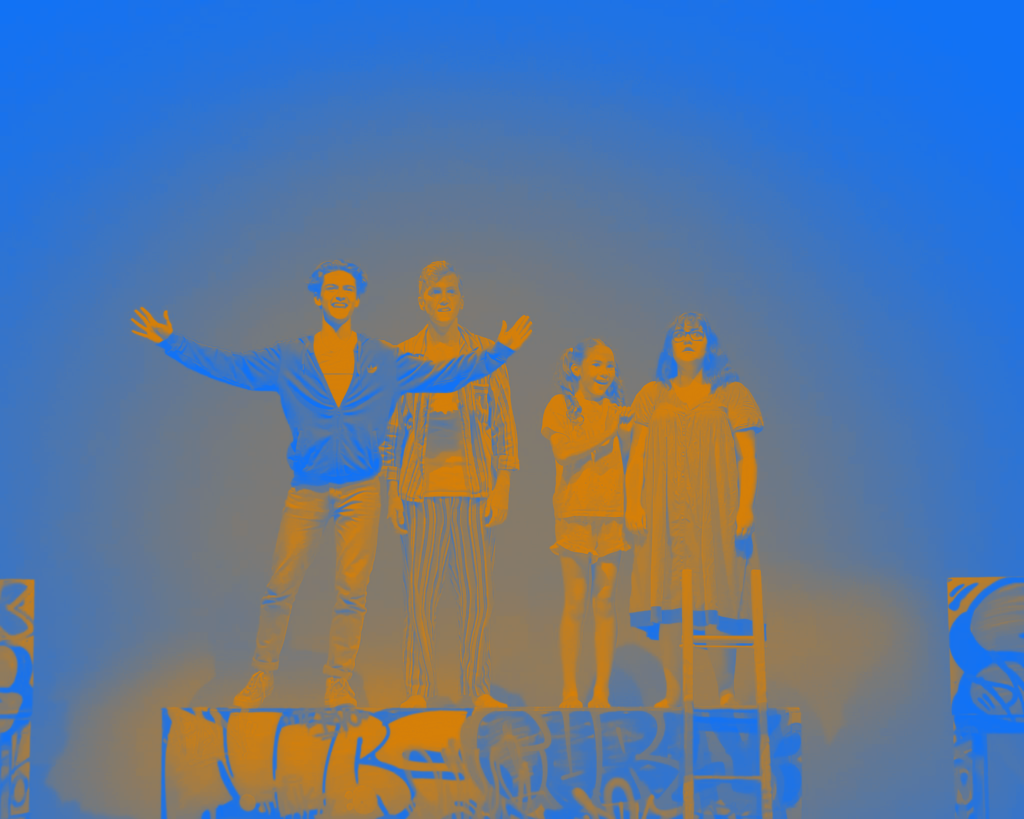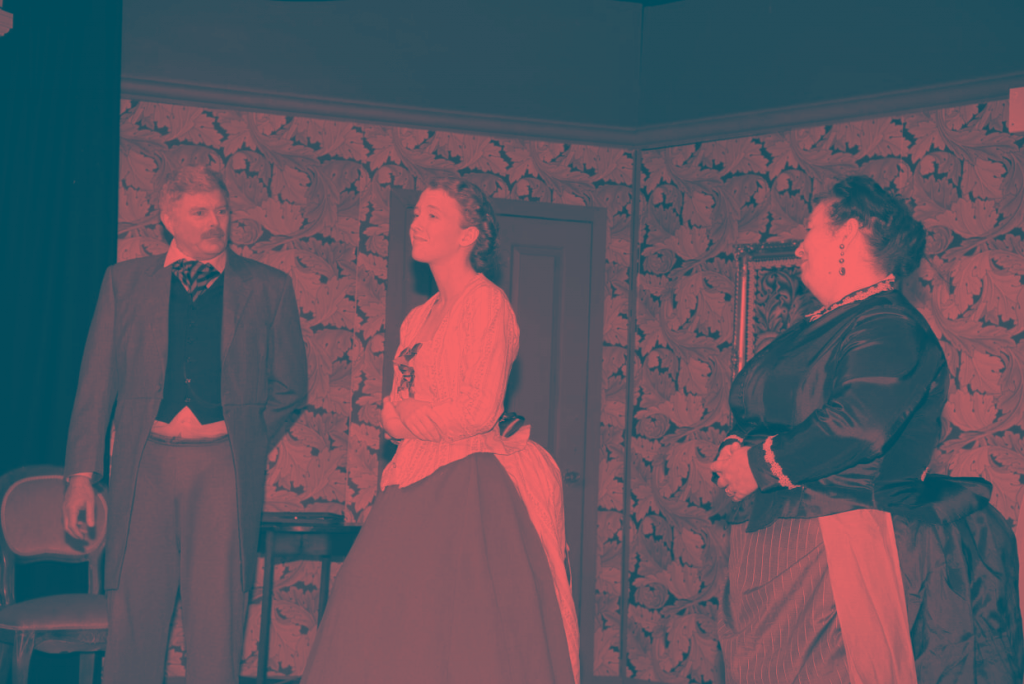
‘Mary Rose’ // Growl Theatre
‘Mary Rose’ was touching.
Upon arrival at the heritage-listed Windsor School of Arts in Lutwyche, you are greeted by the friendly and welcoming volunteers of Growl Theatre and step into the beautiful hall they call home. The stage was open allowing the audience to view the set prior to the start of the show and patrons were welcomed to a small bar with drinks and snacks available at very reasonable prices. All the best things about community theatre were evident and the audience quickly settled in for the haunting tale of ‘Mary Rose’.
This little-known work by J.M. Barrie (author of ‘Peter Pan’) was billed as “a haunting tale of a girl, of time, and of the places just out of sight”. This mood was established straight away with a sparse set of a period drawing room with furniture covered in sheets and the faint strains of piano music by French composer Ravel.
The story, beginning in 1919, tells the tale of Mary Rose through the eyes of a young man returning to a vacation manor after years away. It is part mystery and part ghost story and the narrative is cleverly explored through flashbacks. The audience is introduced to Mary Rose and her family; parents; friends; husband; and a son. Through a strange twist of circumstances, Mary Rose disappears for unexplained stretches of time, not once, but twice. The first, as a child, for 21 days. When she returns she has no knowledge of being absent. The second time, as a married woman and mother, this time for decades. When she does eventually return, she has not aged a day, and her young son is now older than her.
Being a ghost story, ‘Mary Rose’ is an oddly touching tale with delightful characters and Growl Theatre have created this world beautifully. The simple set design gives way to some lovely period costumes that help create a world from over 100 years ago. This is a significant credit to Jason Sharland (set design) and Anne Grant (costume design) for their work.
The use of Ravel’s music, who was a contemporary of Barrie, created a serene yet haunting mood in the space. Lighting and sound design were effective and understated, however, the scene changes were long and at times obtrusive to the mood as stage crew moved slowly rather than with purposeful and rehearsed efficiency.
The main struggle with this production was the length of the show (3 hours in total) which was partly due to the lengthy script but also the pace at which the actors delivered the lines. Whilst it is refreshing to have actors enunciate their words and clearly connect with each line, there were long pauses between almost every line causing the pace of the story to drag painfully. Barrie’s script could benefit from a strong edit as many ideas and plot points were outlined numerous times, detracting from the intrigue and mystery of the story.
The performances, however, were well presented and credit to director Julie Bray for her work in purposefully staging a very wordy script and developing some very touching moments and characterisation with her cast. There was little to be done regarding blocking and movement due to the wordy nature of the script, however, the relationships and engagement of the characters were clearly evident throughout the production.
Irene McLeod (as caretaker Mrs Otery) and Joel Lago (as Mary Rose’s son, Harry) opened the show well, setting up the mysterious and haunting mood with appropriate volume levels and characterisation. The banter between long-time friends James Morland (Julian Glassock) and George Amy (Rob Connaughton) quickly changed the mood of the story in the second scene and provided several lovely comic moments throughout the play. Glassock and Michelle Whitmore as Mr and Mrs Morland were a delightful pairing and the loving relationship they had with their daughter was a joy to watch.
Sam Johnson as the Scottish local, Mr Cameron, provided a gentle and calm presence throughout his scenes, with some accent inaccuracies but a lyrical timbre to his voice. The transition from energetic young man to a grounded naval officer was expertly handled by Aaron Watson as Simon. The ability to portray a character in two very different stages of life can be a challenge, and Watson shone, displaying boundless puppy-like energy during the marriage proposal which was a lovely juxtaposition to the grounded, strong, and stoic gentleman in Act 2. His powerful voice was at times too much for the small, resonant hall but worked in contrast to the light vocals of Julie Stewart as Mary Rose.
Stewart’s portrayal of the title role was the standout in this production. She beautifully presented the naive, wide-eyed girl, flitting about like a sparrow both physically and vocally and it was hard not to view the world as a beautiful, wondrous place through her eyes. Her energy on stage was heart-warming but it was her gravitas and stillness as the ghost of Mary Rose in the final scene that displayed a young actress with great skill and connection to the craft.
Take the time to visit this charming venue and see this show to support local community theatre. With delightful performances and lovely production elements, it is a nice way to escape the world for a while and delve into the intrigue of ‘Mary Rose’.
‘Mary Rose’ is playing at the Windsor School of Arts until Saturday, 7 September 2019. Tickets and additional information are available at Growl Theatre’s Website.




